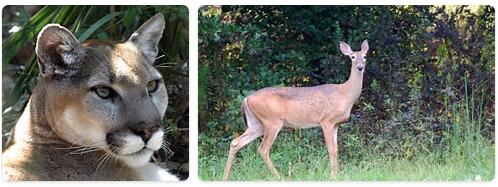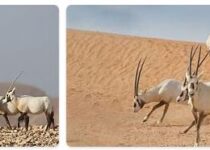Geography of Georgia
Where is the country of Georgia located on world map? According to COUNTRYAAH.COM, Georgia is an independent nation located in Western Asia. Georgia celebrates its independence day on May 26, commemorating the proclamation of independence from the Soviet Union in 1991. The formal name of Georgia is The Republic of Georgia and its national symbols include a flag with a white background featuring an image of St. George slaying a dragon, an escutcheon featuring a shield with four crosses above it, and the national seal which features an image of St. George slaying the dragon. The national anthem is called “Tavisupleba” which translates to “Freedom”. The national flower is the cornflower while the national animal is the Golden Eagle. Georgia also has an official motto: “Strength in Unity”. See historyaah for Georgia history.
Nature
Georgia has predominantly (about 85%) mountainous terrain and high altitude contrasts at small distances. Northern Georgia includes parts of the Caucasus mountain ranges with peaks such as Shchara (5,064 m above sea level) and the extinct Kazbek volcano (Georgian Qazbegi; 5,033 m above sea level). In the next terrain zone to the south, lowlands dominate. Kolchida’s fertile plains along the Black Sea. East along the Kuras (Georgian Mtkvari) river system, a plateau is surrounded by mountains on all sides and mostly covered by loose soil. The southernmost zone consists of mountain ranges and plateaus that belong to the Lesser Caucasus.
In West Georgia, the climate is subtropical with 1,000-2,000 mm of precipitation per year, in the east, precipitation is 400-700 mm per year. The soil shows great variation with fertile red soils but also pod sun and saline desert soils.
The composition of the plant world follows the regional variation of the climate. Forests and shrubs cover one third of the total area, while large areas comprise sheep pasture. In the west there are lush forests with eg. oaks, oriental book, caucasian pine, real chestnut, linden and al. The under vegetation consists, among other things, of of rhododendrons and hazel. The forests have a rich wildlife with larger predators and many bird species. There are plenty of fish in the rivers.
Nature conservation

There were five national parks in Georgia in 2008. The largest was Tusheti (1,183 km2). Another 26 major nature conservation areas were located in the country. The protected areas cover about 25% of the country’s area.
In January 2016, the ICC decided to allow its prosecutor to investigate possible war crimes and crimes against humanity during and up to the Georgia-Russia war in August 2008. That same month, the Council of Europe’s Commissioner for Human Rights announced that Georgia’s judiciary had a significant political blow. While for the same violations it gave conditional or unconditional judgments to members of the opposition parties, it did impose fines or liens on members of the ruling party.
In April 2016, the Constitutional Court issued a ruling that legislation giving the intelligence services unlimited access to telecommunications operators’ networks to carry out surveillance was in violation of the Constitution. The court also ordered the government to amend the legislation by March 2017. During the October general election campaign, a number of private conversations between opposition leaders and their staff were made public. The purpose was to influence the election result. The intelligence service refused to be the source of the secret footage.
In July, the EU and Georgia signed an association agreement, according to which the regime would receive DKK 100 million annually. € from the EU, in return for implementing a number of human rights and legal security reforms.
The October 2016 parliamentary elections became a landslide victory for Georgia’s Dream, going 67 seats up to 115. The party thus had an absolute majority. UNM returned 19 seats to 27. The rest of the opposition was almost wiped out. Election observers reported that the election had been predominantly fair despite assaults on a number of opposition politicians and irregularities in the vote count in 1/3 of the polling stations.
Security forces in more remote areas of the country continued to use torture against suspects or even killings. The cases were not often investigated because witnesses were afraid to stand up because of the fear of reprisals.
- AbbreviationFinder: Offer a full list of commonly used abbreviations, acronyms, and initialisms related to the state of Georgia.
Tbilisi
Tbilisi, capital of Georgia; 1. 1 million residents (2018). Tbilisi is located on the river Kura. In addition to its administrative functions for the country, the city also plays a crucial role as an educational, commercial and industrial city. However, the multifaceted industry, where special production of transport equipment and machine tools was built up during the Soviet period, is facing a comprehensive restructuring. The city has a university (founded 1918). The old town below the Nariqala fortress on the river’s right bank has several important building monuments, including. Sionica Cathedral, originally from the 500s and 600s.
Settlement has been proven as early as the 3000s BC However, the city probably emerged as a trading center between Asia and Europe during the second half of the first millennium BC. (compare Iberians).
During the 500s AD Tbilisi became the capital of the eastern Georgian kingdom of Kartli, and its position was further consolidated during the 12th and 13th centuries. Heavily ravaged by Turkish and Iranian people from the 1300s to the 1700s, Tbilisi was incorporated in Russia by Russia in 1801 as the administrative and military center of the Georgian, from 1846 the Tbilisi government. With the introduction of the Russian Empire followed industrialization and the establishment of rail links. At the end of the 19th century, Tbilisi was the scene of conflicts between a Georgian proletariat, a Russian political ruling class and an Armenian economic upper class.
After being in the center of an independent Georgian republic for a few short years from 1918, Tbilisi became the capital of the Soviet Republic of Georgia in 1921. Since 1991, it is again the independent capital of Georgia.


